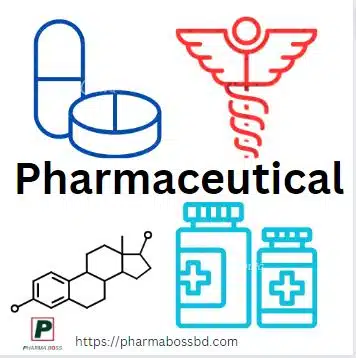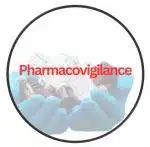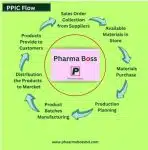Learn here 100 Questions and Answers About Pharmaceutical Industry.
Table of Contents
Introduction
The pharmaceutical industry plays a pivotal role in healthcare by researching, developing, and producing medications that improve and save lives. It combines science, innovation, and regulatory expertise to create a wide range of drugs, from life-saving treatments to preventive vaccines. This industry’s contributions are critical in addressing various medical conditions, from common ailments to rare diseases.
However, it operates within a complex landscape of regulations, clinical trials, and ethical considerations. Balancing profit motives with the greater good of public health can be challenging. Ongoing advancements in biotechnology, personalized medicine, and digital health are reshaping the industry. As the demand for innovative therapies grows, collaboration between pharmaceutical companies, healthcare providers, and regulatory bodies becomes increasingly vital to ensure safe, effective, and accessible treatments for all.

Read Also: SOP in the Pharmaceutical industry
Below, learn 100 Frequently Asked Questions about Pharmaceutical
Frequently Asked Questions (FAQs)
1. What are pharmaceuticals?
Pharmaceuticals, also known as drugs or medicines, are chemical substances or compounds formulated to prevent, diagnose, treat, or alleviate medical conditions or diseases in humans or animals.
2. How are pharmaceutical drugs developed?
Pharmaceutical drugs are developed through a complex process that involves drug discovery, preclinical research, clinical trials, regulatory approvals, and post-market surveillance. Researchers identify potential compounds, test their efficacy and safety in laboratories and animal models, and then proceed to clinical trials in humans.
3. What is the purpose of pharmaceutical research and development?
The purpose of pharmaceutical research and development is to discover, develop, and bring to market safe and effective drugs that can improve health outcomes and quality of life. It involves extensive scientific investigation, clinical testing, and regulatory processes to ensure the safety and efficacy of new drugs.
4. What is a generic pharmaceutical product?
A generic pharmaceutical product is a medication that is equivalent to a brand-name drug in terms of active ingredients, dosage, strength, route of administration, quality, and intended use. Generics are produced once the patent for the original brand-name drug has expired.
5. How are pharmaceutical drugs regulated?
Pharmaceutical drugs are regulated by health authorities in different countries, such as the U.S. Food and Drug Administration (FDA) in the United States, the European Medicines Agency (EMA) in Europe, and similar agencies worldwide. These agencies review and approve drugs for safety, efficacy, and quality before they can be marketed.
6. What is the FDA?
A regulatory body in the United States called the FDA (Food and Drug Administration) is in charge of assuring the security, safety, and efficacy of a wide range of goods, including pharmaceutical medications, medical devices, food, and cosmetics.
7. What is the role of clinical trials in pharmaceutical development?
Clinical trials are critical stages of pharmaceutical development where drugs are tested in humans to assess their safety, efficacy, and optimal dosage. Clinical trials involve multiple phases and help gather the data necessary for regulatory approval.
8. How long does it typically take for a pharmaceutical drug to be approved?
The time it takes for a pharmaceutical drug to be approved varies widely and can range from several years to over a decade. It depends on factors such as the complexity of the drug, the results of clinical trials, and the regulatory processes involved.
9. What is the difference between over-the-counter (OTC) and prescription pharmaceuticals?
Over-the-counter (OTC) pharmaceuticals are available without a prescription and are typically used to treat common ailments. Prescription pharmaceuticals require a healthcare professional’s prescription and are intended for more serious or complex medical conditions.
10. How are pharmaceutical patents obtained?
Pharmaceutical companies obtain patents for new drugs by demonstrating their novelty, non-obviousness, and usefulness. Patents grant exclusive rights to the company to produce and sell the drug for a specific period, usually 20 years from the date of filing.
11. What is bioavailability in pharmaceuticals?
Bioavailability refers to the extent and rate at which the active ingredient of a pharmaceutical product is absorbed into the bloodstream after administration. It influences the drug’s effectiveness and is affected by factors such as formulation and route of administration.
12. What are the main phases of clinical trials?
Clinical trials consist of several phases: Phase 1 (safety and dosage testing in a small group), Phase 2 (efficacy and side effect assessment in a larger group), Phase 3 (confirming results in a larger population), and Phase 4 (post-marketing surveillance).
13. How are pharmaceutical drug prices determined?
Pharmaceutical drug prices are influenced by factors such as research and development costs, manufacturing expenses, regulatory requirements, market demand, competition, and healthcare policies in different countries.
14. What is pharmacovigilance?
Pharmacovigilance involves monitoring and assessing the safety of pharmaceutical drugs after they have been approved and are on the market. It aims to detect and prevent adverse effects and ensure the ongoing safety of medications.
15. What are the potential side effects of pharmaceutical drugs?
Pharmaceutical drugs can have a range of potential side effects, which can vary from mild to severe. Common side effects include nausea, headaches, and dizziness, while more serious effects might involve allergic reactions or organ toxicity.
16. What is personalized medicine in the pharmaceutical industry?
Personalized medicine involves tailoring medical treatment to an individual’s genetic makeup, lifestyle, and specific disease characteristics. This approach aims to optimize treatment outcomes by targeting therapies that are most likely to be effective for a particular patient.
17. What are orphan drugs?
Pharmaceuticals called orphan medications were created to address uncommon illnesses or diseases that only affect a tiny number of people. Governments frequently offer incentives to promote the development of orphan medications since pharmaceutical corporations may not find certain situations to be economically beneficial.
18. How do pharmaceutical companies market their products to healthcare professionals?
Pharmaceutical companies market their products to healthcare professionals through various means, including sales representatives, medical conferences, sponsored educational events, and peer-reviewed publications.
19. What is a placebo in clinical trials?
A placebo is an inactive substance (like a sugar pill) given to participants in a clinical trial who are in the control group. It helps researchers assess the true effects of the experimental drug by comparing its results to those of the placebo.
20. How are pharmaceutical drugs manufactured?
Pharmaceutical drugs are manufactured through precise processes involving raw material selection, formulation development, manufacturing in controlled environments, quality testing, and packaging to ensure consistent and safe production.
21 What is a drug interaction?
A drug interaction occurs when two or more drugs interact with each other, affecting their individual efficacy, metabolism, or safety. Interactions can lead to unintended side effects or reduced effectiveness of one or more medications.
22. How do pharmaceutical companies ensure the quality of their products?
Pharmaceutical companies ensure product quality through rigorous quality control processes, adherence to Good Manufacturing Practices (GMP), comprehensive testing, and inspections at various stages of production.
23. What is off-label drug use?
Off-label drug use refers to the practice of prescribing a medication for a purpose not specifically approved by regulatory agencies. Healthcare professionals may use their clinical judgment to use a drug for conditions or patient populations beyond its approved indication.
24. How do pharmaceutical companies ensure the safety of their products?
Pharmaceutical companies ensure product safety through rigorous preclinical testing, clinical trials, post-market surveillance, monitoring adverse events, and complying with regulatory requirements for safety reporting.
25. What is the role of a pharmacist in dispensing pharmaceuticals?
Pharmacists play a vital role in dispensing pharmaceuticals by reviewing prescriptions for accuracy, providing medication counseling to patients, ensuring proper dosage, checking for drug interactions, and promoting patient safety.
26. What is a black box warning?
A black box warning, also known as a boxed warning, is the strongest warning issued by regulatory agencies like the FDA. It appears on the drug’s label to alert healthcare professionals and patients about serious or potentially life-threatening risks associated with the medication.
27. How do pharmaceuticals impact the environment?
Pharmaceuticals can impact the environment when they are excreted by patients and enter wastewater systems. Some drugs are not effectively removed by wastewater treatment plants, leading to concerns about their potential effects on aquatic ecosystems.
28. What is the role of compounding pharmacies?
Compounding pharmacies create customized medications based on individual patient needs, such as adjusting dosages, removing allergens, or changing formulations. They play a crucial role in cases where commercially available medications are not suitable.
29. What is a biologic pharmaceutical product?
Biologic pharmaceutical products, often called biologics, are complex therapeutic substances derived from living organisms. They include vaccines, monoclonal antibodies, and cell-based therapies, and they are produced through advanced biotechnological processes.
30. How do pharmaceutical companies handle drug recalls?
Pharmaceutical companies handle drug recalls by notifying regulatory agencies, healthcare professionals, and the public if a safety concern arises. Recalls involve removing the affected product from the market and addressing the issue that led to the recall.
31. What is the Drug Enforcement Administration (DEA)?
Enforcement of controlled substance laws and regulations falls under the purview of the Drug Enforcement Administration (DEA), a federal agency in the United States. It monitors the production, distribution, and use of substances with potential for abuse, such as narcotics and prescription medications.
32. What is the World Health Organization’s (WHO) role in pharmaceuticals?
The World Health Organization (WHO) plays a global role in pharmaceuticals by setting standards, guidelines, and policies related to drug safety, access to essential medicines, and health technologies, particularly in developing countries.
33. What is the difference between a brand-name drug and a generic drug?
A brand-name drug is developed and marketed by a pharmaceutical company that holds a patent for the drug’s active ingredient and brand name. A generic drug is a version of the brand-name drug produced after the patent has expired, containing the same active ingredient but typically at a lower cost.
34. How are pharmaceutical drugs transported and stored?
Pharmaceutical drugs are transported and stored under controlled conditions to maintain their stability, safety, and efficacy. This involves temperature control, protection from light, humidity control, and adherence to specific storage requirements.
35. What is a drug formulary?
A drug formulary is a list of medications approved by a healthcare organization or insurance plan for coverage and reimbursement. Formularies help guide healthcare professionals in prescribing cost-effective and clinically appropriate medications.
36. How do pharmaceutical companies address drug shortages?
Pharmaceutical companies address drug shortages by identifying supply chain issues, increasing production, improving manufacturing processes, and collaborating with regulatory agencies to ensure a consistent supply of essential medications.
37. What is the role of intellectual property in the pharmaceutical industry?
Intellectual property (IP) is crucial in the pharmaceutical industry, as it allows companies to protect their innovations, research, and drug development efforts. Patents, copyrights, and trademarks safeguard the company’s investment and incentivize innovation.
38. How do pharmaceutical companies collaborate with academic researchers?
Pharmaceutical companies collaborate with academic researchers through partnerships, joint research projects, and funding for studies. These collaborations often contribute to the discovery of new drugs, understanding disease mechanisms, and advancing medical science.
39. What is the role of regulatory agencies in different countries for pharmaceuticals?
Regulatory agencies in different countries oversee the safety, efficacy, and quality of pharmaceutical drugs before they can be marketed. They review clinical trial data, manufacturing practices, and labeling to ensure that drugs meet established standards.
40. How are pharmaceutical sales representatives trained?
Pharmaceutical sales representatives are trained to understand the products they promote, including their mechanisms of action, indications, and potential benefits. They also receive training in communication skills, ethics, and regulations to effectively engage with healthcare professionals.
41. What is the orphan drug designation?
The orphan drug designation is a special status granted to pharmaceutical products developed for rare diseases or conditions. It provides incentives, such as extended exclusivity periods and regulatory assistance, to encourage the development of treatments for underserved patient populations.
42. How do pharmaceutical companies ensure patient privacy with their medications?
Pharmaceutical companies follow strict privacy regulations, such as the Health Insurance Portability and Accountability Act (HIPAA) in the United States, to protect patient information. They maintain secure systems and processes for handling sensitive data.
43. What is the pharmaceutical supply chain?
The pharmaceutical supply chain encompasses the various stages involved in producing, distributing, and delivering pharmaceutical products. It includes sourcing raw materials, manufacturing, packaging, transportation, storage, and delivery to pharmacies and healthcare facilities.
44. What is a controlled substance in pharmaceuticals?
A controlled substance is a drug with the potential for abuse and dependence. These substances are regulated by government agencies like the DEA and are categorized into different schedules based on their medical use and potential for harm.
45. How are pharmaceutical advertisements regulated?
Pharmaceutical advertisements are regulated by government agencies, such as the FDA in the United States, to ensure that they provide accurate and balanced information about a medication’s benefits and risks. Misleading or false advertising is prohibited.
46. What is the significance of the Hatch-Waxman Act?
The Hatch-Waxman Act, officially known as the Drug Price Competition and Patent Term Restoration Act, encourages the development of generic drugs by providing a streamlined approval process and patent-related provisions.
47. How do pharmaceutical companies contribute to medical research?
Pharmaceutical companies contribute to medical research by funding and conducting clinical trials, researching new therapies, exploring disease mechanisms, and sharing findings with the scientific community. Their contributions drive advancements in healthcare.
48. What is the process of drug discovery?
The process of drug discovery involves identifying potential drug candidates through various methods, such as high-throughput screening, target identification, and molecular modeling. Promising candidates are then developed and tested for safety and efficacy.
49. What is a dosage form in pharmaceuticals?
A dosage form is the physical presentation of a pharmaceutical product, such as tablets, capsules, liquids, creams, and injections. It determines how the drug is administered and how it interacts with the body.
50. How are drugs named in the pharmaceutical industry?
Pharmaceutical drugs are given both generic and brand names. Generic names are based on the drug’s chemical composition and are internationally recognized. Brand names, on the other hand, are chosen by the manufacturer and serve as a distinctive identifier for their product
51. What is a clinical trial protocol?
A clinical trial protocol is a detailed document that outlines the objectives, design, methodology, procedures, and participant eligibility criteria for a clinical trial. It serves as a roadmap for conducting the trial, ensuring consistency, safety, and scientific rigor.
52. What is the role of data integrity in pharmaceutical manufacturing?
Data integrity in pharmaceutical manufacturing refers to maintaining the accuracy, reliability, and consistency of data throughout the entire manufacturing process. It is crucial to ensure product quality, patient safety, and regulatory compliance.
53. How do pharmaceutical companies address counterfeit drugs?
Pharmaceutical companies address counterfeit drugs through various measures, including implementing secure packaging with unique identifiers, using track-and-trace technologies, collaborating with regulatory agencies and law enforcement, and raising awareness among healthcare professionals and the public.
Pediatric pharmaceuticals are developed and tested through specialized clinical trials that consider the unique physiology, safety, and dosing requirements of children. Ethical considerations and regulatory guidelines ensure the protection of pediatric participants.
54. What is the role of pharmacokinetics in drug development?
Pharmacokinetics is the study of how a drug is absorbed, distributed, metabolized, and excreted by the body. It plays a vital role in drug development by providing insights into dosing regimens, optimizing drug formulations, and ensuring therapeutic efficacy and safety.
55. How do pharmaceutical companies ensure the ethical conduct of clinical trials?
Pharmaceutical companies ensure the ethical conduct of clinical trials by adhering to guidelines such as Good Clinical Practice (GCP), obtaining informed consent from participants, ensuring independent oversight by ethics committees, and transparently reporting trial results.
56. What is the Orphan Drug Act?
The Orphan Drug Act incentivizes the development of drugs for rare diseases by providing financial incentives, extended exclusivity, and regulatory support to pharmaceutical companies working on treatments for conditions that affect a small patient population.
57. What is the role of the International Council for Harmonisation (ICH) in pharmaceuticals?
The International Council for Harmonisation (ICH) facilitates global collaboration between regulatory authorities and the pharmaceutical industry to develop guidelines and standards that streamline drug development and regulatory processes.
58. How do pharmaceutical companies contribute to global health initiatives?
Pharmaceutical companies contribute to global health initiatives by providing affordable medications, participating in research and development for diseases affecting underserved populations, and supporting initiatives aimed at improving healthcare access and outcomes worldwide.
59. What is the role of pharmacy benefit managers (PBMs)?
Pharmacy benefit managers (PBMs) negotiate drug prices with pharmaceutical companies on behalf of insurance plans and employers, aiming to control costs, ensure medication access, and promote cost-effective drug utilization.
60. How are pediatric pharmaceuticals developed and tested?
Pediatric pharmaceuticals are developed and tested through specialized clinical trials that consider the unique physiology, safety, and dosing requirements of children. Ethical considerations and regulatory guidelines ensure the protection of pediatric participants.
61. What is the significance of the Drug Price Competition and Patent Term Restoration Act?
The Drug Price Competition and Patent Term Restoration Act, also known as the Hatch-Waxman Act, balances patent protection and generic drug competition, promoting affordable access to medications by streamlining the approval process for generic drugs.
62. What is the role of Good Manufacturing Practice (GMP) in pharmaceuticals?
Good Manufacturing Practice (GMP) establishes quality standards and regulations for pharmaceutical manufacturing, ensuring consistent product quality, safety, and efficacy.
63. How do pharmaceutical companies handle adverse events?
Pharmaceutical companies handle adverse events by monitoring and reporting them to regulatory agencies, healthcare professionals, and patients, and taking appropriate actions to ensure patient safety.
64. What is the difference between efficacy and effectiveness in pharmaceuticals?
Efficacy refers to a drug’s performance under ideal conditions, often observed in controlled clinical trials. Effectiveness reflects a drug’s real-world performance and outcomes in diverse patient populations and settings.
65. How are pharmaceuticals regulated in online sales?
Pharmaceuticals in online sales are regulated to ensure safety and authenticity. Regulatory agencies work to monitor and control online pharmacies, ensuring proper handling, storage, and distribution of medications.
66. What is the role of post-marketing surveillance in pharmaceuticals?
Post-marketing surveillance involves monitoring a drug’s safety and effectiveness after it’s approved and on the market. This ongoing monitoring helps identify previously unrecognized adverse effects and ensures patient safety.
67. How do pharmaceutical companies approach drug design?
Pharmaceutical companies approach drug design by combining scientific research, molecular modeling, and computational techniques to create molecules with desired therapeutic effects and minimal side effects.
68. What is the role of the European Medicines Agency (EMA)?
The European Medicines Agency (EMA) evaluates and supervises medicinal products in the European Union, ensuring their quality, safety, and efficacy.
69. What is the role of the United States Pharmacopeia (USP)?
The United States Pharmacopeia (USP) sets quality standards for drugs and their ingredients, helping ensure consistency, safety, and efficacy of medications.
70. How do pharmaceutical companies address pricing disparities in different countries?
Pharmaceutical companies address pricing disparities in different countries through negotiation, tiered pricing strategies, and collaborations with governments and international organizations to ensure equitable access to medications.
71. What is the role of excipients in pharmaceutical formulations?
Excipients are non-active ingredients added to pharmaceutical formulations to enhance stability, absorption, and overall product performance.
72. How do pharmaceutical companies engage with patient advocacy groups?
Pharmaceutical companies engage with patient advocacy groups by collaborating on research, patient education, and access initiatives, incorporating patient perspectives into drug development and decision-making.
73. What is the role of the International Federation of Pharmaceutical Manufacturers & Associations
(IFPMA)?
The International Federation of Pharmaceutical Manufacturers & Associations (IFPMA) represents the global research-based pharmaceutical industry, advocating for policies that promote innovation, patient access, and ethical practices.
74. How do pharmaceutical companies handle intellectual property disputes?
Pharmaceutical companies handle intellectual property disputes through legal channels, such as patent litigation, negotiations, and licensing agreements, protecting their innovations while ensuring fair competition.
75. What is the role of the Center for Drug Evaluation and Research (CDER)?
Before new medications may be commercialized, the U.S. FDA’s Center for Drug Evaluation and Research (CDER) must assess the quality, safety, and efficacy of each one.
76. How do pharmaceutical companies contribute to antibiotic stewardship?
Pharmaceutical companies contribute to antibiotic stewardship by developing new antibiotics, promoting appropriate antibiotic use, and collaborating with healthcare providers to combat antibiotic resistance.
77. What is the role of pharmaceutical compendia?
Pharmaceutical compendia provides comprehensive information on drug standards, testing methods, and quality control, ensuring consistent product quality and safety.
78. How do pharmaceutical companies ensure the quality of active pharmaceutical ingredients (APIs)?
Pharmaceutical companies ensure the quality of active pharmaceutical ingredients (APIs) through rigorous testing, adherence to GMP standards, and supply chain oversight.
79. What is the role of biopharmaceutics in drug development?
Biopharmaceutical studies the relationship between a drug’s formulation, its delivery, and its therapeutic effect, helping optimize drug development and formulation strategies.
80. How do pharmaceutical companies address challenges in orphan drug development?
Pharmaceutical companies address challenges in orphan drug development by leveraging incentives, conducting targeted research, and collaborating with patient advocacy groups to advance treatments for rare diseases.
81. What is the role of the Prescription Drug Marketing Act?
The Prescription Drug Marketing Act aims to regulate the distribution and marketing of prescription drugs to prevent counterfeit, adulterated, or misbranded drugs from entering the market.
82. How are pharmaceuticals regulated in clinical research settings?
Pharmaceuticals in clinical research settings are regulated through protocols approved by ethics committees, adherence to GCP, and transparent reporting of trial results.
83. What is the role of the Food, Drug, and Cosmetic Act?
The Food, Drug, and Cosmetic Act is a key U.S. law regulating the safety and effectiveness of food, drugs, cosmetics, and medical devices.
84. How do pharmaceutical companies engage with healthcare professionals at medical conferences?
Pharmaceutical companies engage with healthcare professionals at medical conferences through presentations, exhibits, and discussions, fostering knowledge exchange and collaboration.
85. What is the role of the International Conference on Harmonisation (ICH)?
The International Conference on Harmonisation (ICH) develops guidelines that harmonize global regulatory standards, streamlining drug development and approval processes.
86. How are pharmaceutical companies involved in vaccine development?
Pharmaceutical companies are involved in vaccine development by conducting research, clinical trials, and manufacturing to create safe and effective vaccines.
87. What is the role of quality control in pharmaceutical manufacturing?
Quality control in pharmaceutical manufacturing involves testing and verifying product quality at various stages to ensure that the final product meets predefined standards.
88. How do pharmaceutical companies approach drug repurposing?
Pharmaceutical companies approach drug repurposing by identifying new uses for existing drugs through research and clinical trials, potentially expediting treatment development.
89. What is the role of the Generic Drug User Fee Amendments (GDUFA)?
The Generic Drug User Fee Amendments (GDUFA) support timely review and approval of generic drugs, enhancing market competition and patient access to affordable medications.
90. How do pharmaceutical companies address challenges in rare disease drug development?
Pharmaceutical companies address challenges in rare disease drug development by collaborating with regulatory agencies, patient groups, and researchers to navigate small patient populations and limited data.
91. What is the role of the Pharmacopoeia in pharmaceutical standards?
The Pharmacopoeia sets standards for drug quality, purity, strength, and consistency, guiding pharmaceutical manufacturing and ensuring product quality.
92. How are pharmaceutical companies addressing the opioid epidemic?
Pharmaceutical companies address the opioid epidemic by developing abuse-deterrent formulations, supporting education and awareness campaigns, and complying with regulations to prevent opioid misuse.
93. What is the role of the Medical Affairs department in pharmaceutical companies?
The Medical Affairs department in pharmaceutical companies is responsible for providing medical and scientific information, supporting clinical research, and engaging with healthcare professionals.
94. How do pharmaceutical companies ensure the stability of their products?
Pharmaceutical companies ensure product stability through testing and monitoring of factors such as temperature, humidity, and light exposure, maintaining product efficacy and safety.
95. What is the role of the International Pharmaceutical Federation (FIP)?
The International Pharmaceutical Federation (FIP) represents pharmacists and pharmaceutical scientists globally, promoting pharmacy practice, education, and research.
96. How do pharmaceutical companies handle issues related to patient access to medications?
Pharmaceutical companies address patient access issues through patient assistance programs, pricing strategies, and collaborations with healthcare providers and advocacy groups.
97. What is the role of the Clinical Data Interchange Standards Consortium (CDISC)?
The Clinical Data Interchange Standards Consortium (CDISC) develops standards for clinical research data to improve data quality, interoperability, and regulatory submission.
98. How are pharmaceutical companies contributing to advancements in precision medicine?
Pharmaceutical companies contribute to precision medicine by developing targeted therapies, biomarker-driven treatments, and diagnostic tools that consider individual patient characteristics.
99. What is the role of the International Society for Pharmacoepidemiology (ISPE)?
The International Society for Pharmacoepidemiology (ISPE) promotes the study of drug effects in populations, contributing to drug safety and epidemiological research.
100. How do pharmaceutical companies adapt to emerging technologies in drug development?
Pharmaceutical companies adapt to emerging technologies in drug development by incorporating tools like artificial intelligence, genomics, and high-throughput screening to enhance efficiency and innovation.

Abdus Sobhan Salim is professional experienced pharmacist in pharmaceuticals, author and founder of pharmabossbd.com, the first Bangladeshi pharmaceutical blogger since 2019.



